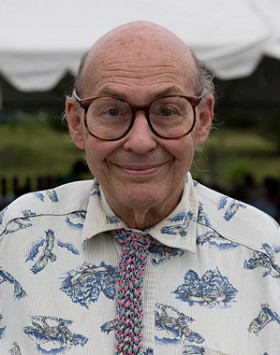 Here's the late Marvin Minsky (1994) in "Will Robots Inherit the Earth?":
Here's the late Marvin Minsky (1994) in "Will Robots Inherit the Earth?":
In the past, we have tended to see ourselves as a final product of evolution - but our evolution has not ceased. Indeed, we are now evolving more rapidly - although not in the familiar, slow Darwinian way. It is time that we started to think about our new emerging identities. We now can design systems based on new kinds of "unnatural selection" that can exploit explicit plans and goals, and can also exploit the inheritance of acquired characteristics. It took a century for evolutionists to train themselves to avoid such ideas - biologists call them 'teleological' and Lamarckian' - but now we may have to change those rules!That's more or less what I have been trying to do over the last decade: drag the theory of evolution into the 21st century by incorporating intelligent design, Lamarckain inheritance, directed mutations, evaluation under simulation and so on.
One of the things I have found is that these things are often not quite as novel an Minsky implies. Organisms have been "inheriting acquired characteristics" for at least as long as dogs have been passing their fleas on to their puppies. Plans and goals are not exactly new either. The first mammals were making plans - and these went on to influence their evolution via sexual selection and in other ways. The picture of these new capabilities arising with human engineering design is not really correct - many of them have much older roots.
IMO, this is interesting because it makes the old school evolutionary biologists and their textbooks wrong in their own terms, not just because of human beings, genetic enginnering, etc.










No comments:
Post a Comment